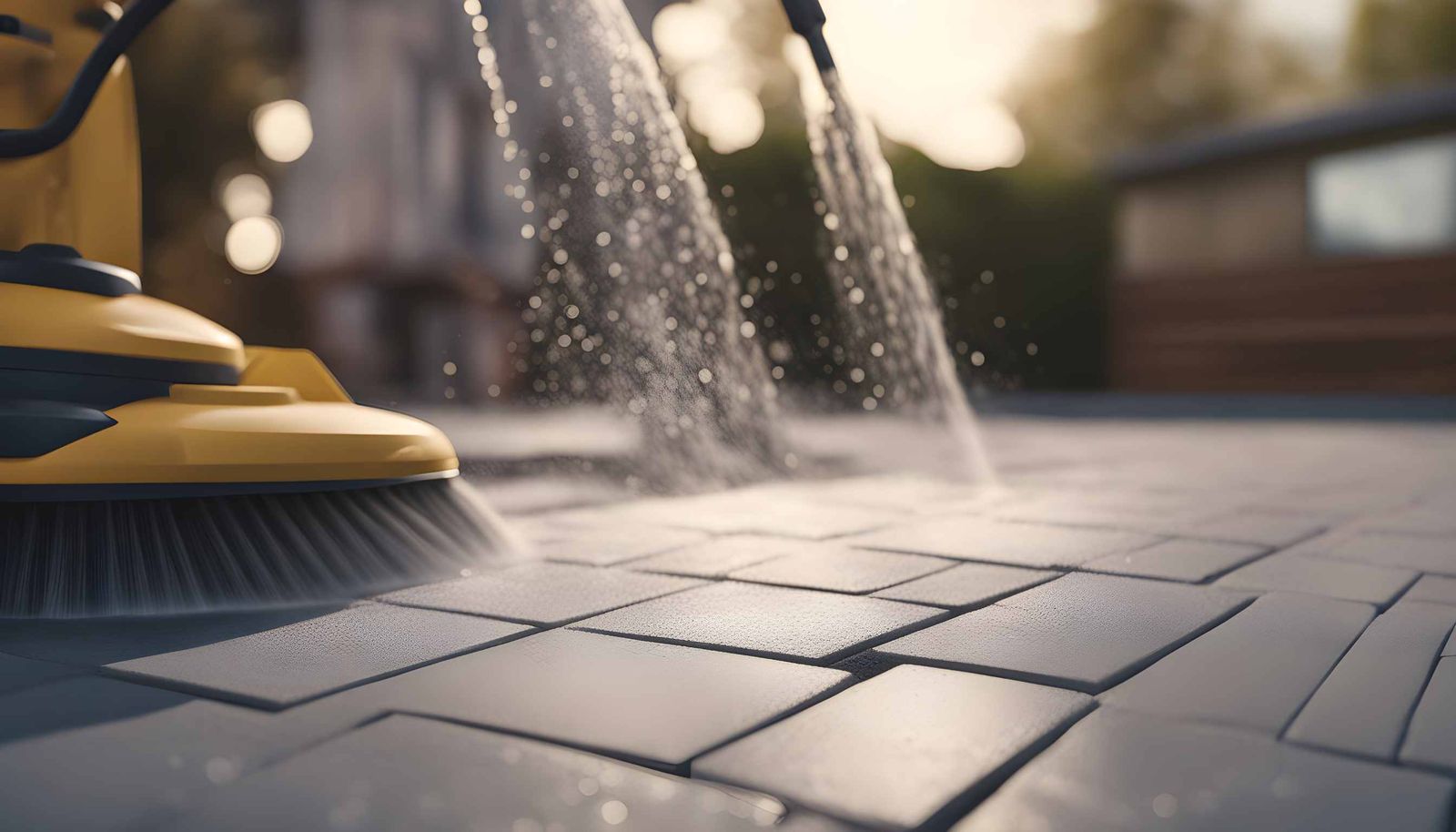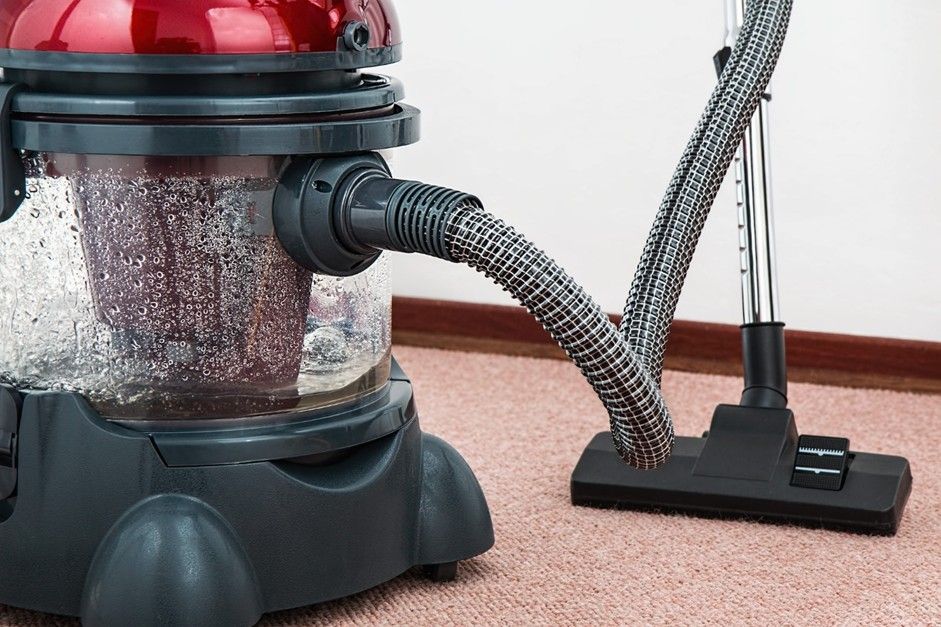When you think about a beautiful home with excellent curb appeal, a paved driveway definitely comes to mind! It’s as if no perfect exterior could be complete without it, and it’ll be hard to achieve that homey yet polished look with any other material.
Pavers are also preferred by many for other things aside from their visual quality. Versatility naturally comes with them, offering a vast array of shapes, colours, sizes, textures and materials suitable for virtually any home design.
They’re also highly durable, weather-resistant, eco-friendly, easy to install and low-maintenance. The list goes on when talking about the benefits of using pavers, which is why it’s only wise to protect their longevity.
There are different ways to care for a paved area. Your cleaning and maintenance routine depends on the types of pavers used and the elements they’re exposed to. Meanwhile, you’ll also need to change a few things in this routine for every season.
Continue reading this article to learn more about cleaning and sealing pavers and driveways based on the material and season.
Natural stone pavers
Natural stone pavers are blocks that were cut from limestone, sandstone or granite slabs. Since natural stones tend to be porous, most require annual sealing to prevent stains and damage. Meanwhile, limestone pavers may need more frequent sealing depending on the traffic they handle and other factors.
Cleaning natural stone pavers is easy. All you need is to sweep regularly and use stone-friendly cleaning agents for gentle washes. As for seasonal care, pouring sand or calcium-based traction products on your driveway during winter is your best bet instead of de-icing chemicals.
Cobblestones
Cobblestones are usually made of granite, though there are also limestone and basalt varieties. They’re also made from natural stones. They differ from natural stone pavers in the sense that cobblestones are mostly reclaimed and are used in their natural form. Meanwhile, some are also manufactured or formed to be more suitable building materials.
Like natural stones, cobblestones can be cleaned using power tools such as leaf blowers, vacuum cleaners and pressure washers. Leaf blowers will be especially helpful during the autumn season when organic debris is everywhere. On the other hand, pressure washing coupled with a mild detergent is recommended for deep cleaning.
It’s worth noting that while cobblestones are highly durable, using too much water pressure isn’t recommended. Also, opt for commercial stain removers made for natural stones to prevent damage.
Brick
Mild detergents are brick-friendly, so they’d be your go-to for pavement maintenance. Sealing-wise, brick pavements require sealing every two to four years to keep the colour vibrant and avoid stains.
The notable difference of brick pavers is that they don’t do well with pressure washing because they can erode the surface. Instead, you can sweep regularly and wash with a hose.
Meanwhile, you can use weed killers or polymeric sand to keep weeds at bay. Then, sand and magnesium acetates are better alternatives to salt-based de-icing for the winter season.
Concrete
You can maintain your concrete pavers through regular sweeping and sealing every two to three years to protect them from stains and fading. Meanwhile, seasonal care involves repair and more thorough cleaning, especially after winter when your driveway might be sandy.
Sand is the best material to improve traction in a driveway made with concrete pavers. De-icing chemicals with salts is best avoided because they're not suitable for concrete materials. Hence, you'll have to clear the sand and inspect damage caused by freezing and thawing come spring and summer time.
Meanwhile, the autumn season might leave you with more organic debris to clear. Sweeping leaves, weeds and other biodegradable items can effectively prevent stains.
Rubber
Do you know that rubber pavers can last a lifetime? Only if you care for them well, though! They’re some of the most durable yet low-maintenance paving options, making them ideal for areas with high traffic and exposure.
How to keep them clean and in top shape?
As with other pavers, you can use a broom or a vacuum cleaner with a brush attachment to remove dirt and debris from the rubber pavement. Meanwhile, use a hose to gently wash the surface and scrub with a mild soap solution and a soft brush.
If you have oil or grease spills, you can use kitty litter or cornstarch as absorbent materials to immediately prevent absorption. Meanwhile, you can use anti-mould sprays formulated for rubber surfaces for mould or mildew protection.
Winter requires the most work, though they're generally manageable. For one, you must switch metal blades to rubber ones before using your snow blower. Conversely, you can also use a plastic shovel to prevent scratching or damaging the rubber.
There are also rubber-safe ice melt products available. Avoid any de-icing agents that contain calcium chloride.
Travertine
Travertine pavers are commonly used around the pool, though they have an aesthetic appeal suitable to many areas around the house. Blocks made from travertine are porous. Because of this, they can easily absorb liquid and are prone to etching. Thus, it's wise to handle them with care when cleaning.
Avoid using acidic cleaners and other harsh chemicals. If you need to wash the paved area, use pH-neutral agents or a mild dish soap. Then, lightly scrub with a soft-bristled brush or a mop to rinse thoroughly and remove any soap residues.
You can also clean your travertine pavement using a broom or vacuum cleaner to prevent dirt and debris from accumulating and staining the surface.
Porcelain
Porcelain pavers not only add beauty and sophistication to an area. They're also highly durable, slip-resistant and naturally water-resistant. However, as with other paving materials, porcelain also needs routine care.
Stick to mild or natural cleaning materials such as white vinegar for regular cleaning and removing mould or mildew. Compared with other pavers, you don’t have to worry about stains since porcelain doesn’t absorb liquids and isn’t as likely to hold on to spilled substances. Hence, light and gentle cleaning would be enough to keep surfaces looking good as new.
While porcelain pavers generally don't require sealing, you can add a high-quality penetrating sealer to enhance their vibrance. Also, while this material is highly resistant to elements, you still have to be wary of scratches, especially when shovelling snow or using a snow blower.
Winter care for porcelain pavements is almost the same as with natural stones and cobblestones. Choose de-icing solutions without calcium chloride and opt for those labelled safe for porcelain.
Marble
Another type of natural stone paver is marble. It’s considered a luxury material commonly found in upscale buildings and establishments for decorative and functional applications. It has undeniable aesthetic appeal, sophistication and durability, thus making it sought after and highly valued.
Cleaning and maintaining marble pavements are just like those made of natural stones. However, the main difference is that they require frequent sealing to keep the surface safe from scratches. Depending on the type of marble you’re dealing with, you must reseal the pavement every six to 12 months.
You can do a simple water test to determine if a marble surface needs a new sealing layer. Pour water into a specific spot and let it sit for 30 minutes. If the water leaves a mark or forms a ring on the surface, it's time to reseal it.
Meanwhile, seasonal care for marble pavements also requires additional steps aside from the usual sweeping or washing. For instance, you’ll have to rotate potted plants or box planters during spring or summer to ensure that they won’t leave a mark on the pavement. You’ll also have to be careful with pesticides and fertilizers and ensure that they won’t corrode or damage the marble.
Sealing is crucial before winter comes, as you’ll need to cover the marble pavement with sand instead of de-icing chemicals that could potentially damage its surface. You can also cover it with a breathable waterproof layer to protect against excessive moisture on days when there’s heavy snowfall.
Grass pavers
Have you ever seen a garden with a pathway made of hollow pavers where grass grows within each? Those are grass pavers, also known as permeable pavers. Aside from their ability to let grass grow within the paver cells, they also allow rainwater to pass through and be absorbed by the soil beneath.
Grass pavers have the versatility to suit driveways, parking lots, pathways and other high-traffic areas. However, this also makes them more susceptible to stains and damage. Moreover, you’ll also have to manage the growth within the pavers when cleaning and maintaining them.
During the growing season, you'll need to regularly mow and fertilize the grass to promote healthy growth while managing height for aesthetic purposes. Weed growth must also be controlled to keep the grass healthy and maintain the stability of the pavers.
For winter care, ensure that there’s no water pooling around the pavers to prevent slippery ice patches. If winter is particularly harsh in your area, it’ll be wise to select winter-hardy grass variants for easier maintenance.
Conclusion
Nothing beats the care, effort and attention you invest in maintaining your pavers every season. When you prioritize cleaning and sealing your paved areas, you’ll not only prolong their lifespan and sustain their aesthetic appeal. By doing so, you’ll also protect your initial investment and boost your property value.







